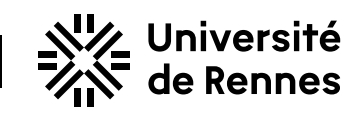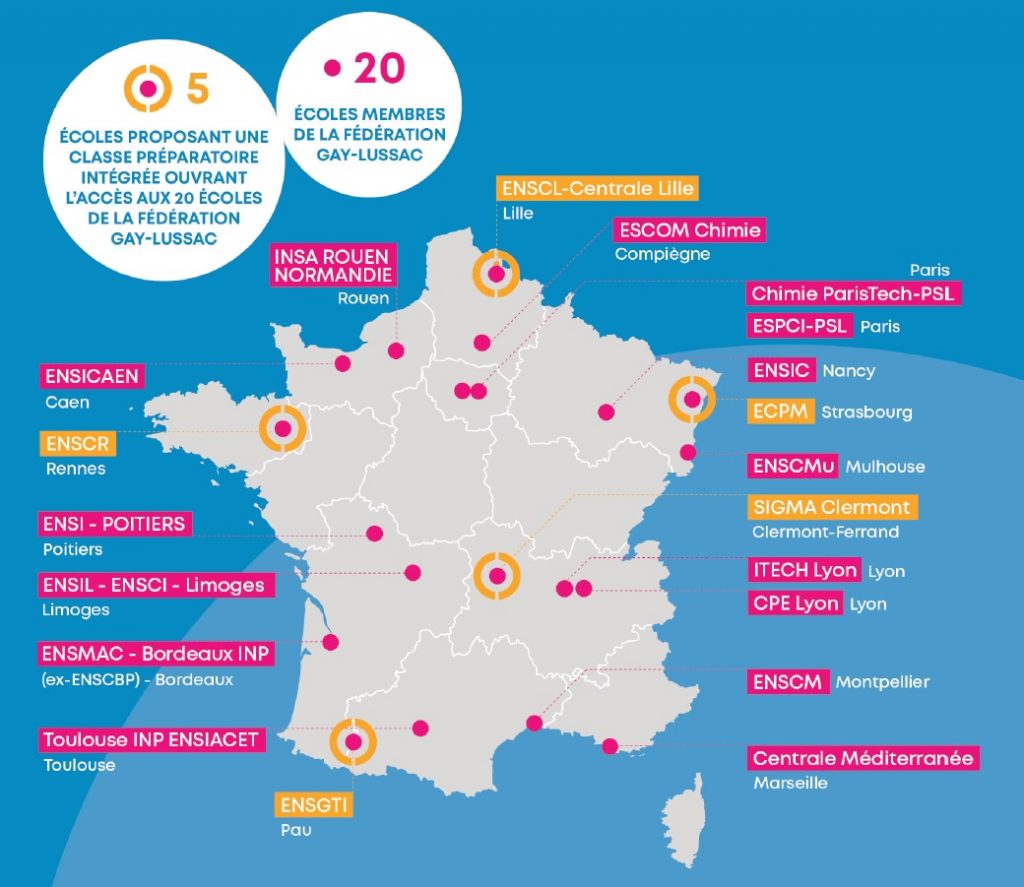THE AIMS
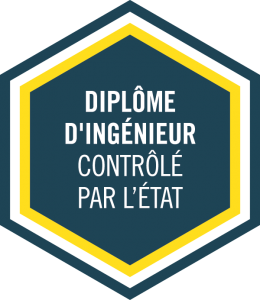
– To help the student progress in two years from the a secondary pupil to a future chemical engineer.
– To give high level scientific training targeted at chemistry and based on solid teaching in theory and practice, suited to the demands of the engineering course.
– To fast-track students into one of the twenty schools of chemistry and of chemical engineering in the Gay Lussac Federation.
– To train future managers and decision-makers in the chemical industries in France and abroad.
THE STRONG POINTS
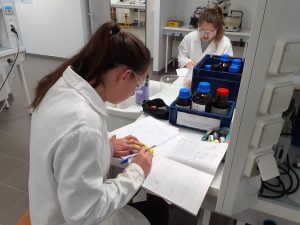 A young, keen hotbed of 200 students-engineers at the school, divided over two years of training in two classes CPI and Chem.I.St
A young, keen hotbed of 200 students-engineers at the school, divided over two years of training in two classes CPI and Chem.I.St- An integrated course that enjoys the same quality environment as that of students on the engineering course: the same teachers, premises and science facilities.
- The presence of an international Chem.I.St class half of whom are from abroad, encouraging the multicultural exchanges that are highly-prized in the world of industry.
- High-level scientific training in chemistry, physics and mathematics
- Wide-ranging teaching on chemistry based largely on practical work (general, organic and mineral chemistry).
- In-depth teaching of two foreign languages (English, German or Spanish) and of French as a foreign language (FLE) for foreign students with the option of studying another language (Italian, Chinese, etc.).
- Training in humanities with classes on communication, economics, ethics and (for foreign students), classes on international awareness and geopolitics.
- Continuous assessment which determines progress to the second year and access without competition to a school of engineering in the Gay Lussac Federation. This is determined by results over the two years of the foundation course, taking into account the student’s preference of college.
- The success rate of student-engineers on the foundation courses exceeds 90% over the two years. This places students trained at ENSCR in the top third of their engineering year, taking all the Schools together.
THE TIMETABLE OF STUDIES
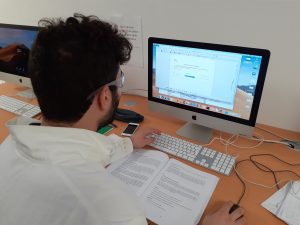 Study lasts for two academic years at a rate of 800 hours of teaching in each year of the course.
Study lasts for two academic years at a rate of 800 hours of teaching in each year of the course.- This corresponds to 34 weeks of teaching of about 28 hours a week divided between lectures, tutorials, lab work and project work; all this is in French.
- Knowledge is rated by continuous assessment in some 40 tests over the year, all subjects combined.
- A committee decides whether students progress to their next year, depending on them obtaining a general average greater than 10/20 at the end of each academic year.
- Students may not re-take a year of a course. Alternative courses of study or careers may be suggested where appropriate.
- The successful student then moves on to one of the twenty schools in the Gay-Lussac Federation for an engineering course after a clearing-house system between the students from the CPI centres of Rennes, Lille, Pau, Strasbourg and Clermont-Ferrand. This allocation, decided by a committee consisting of the directors of schools within the FGL, is determined on the basis of results obtained over the two years, of the schools preferred by the student and of the number of places offered by each of them. The ENSCR offers about 30 places to students through the CPI of the FGL.
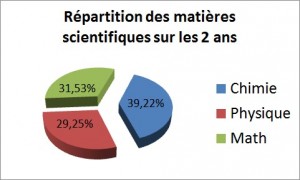
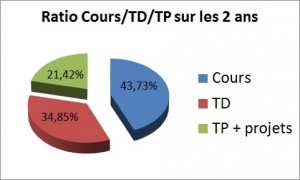
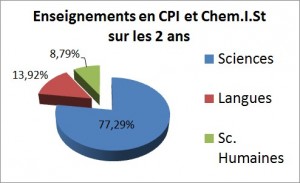
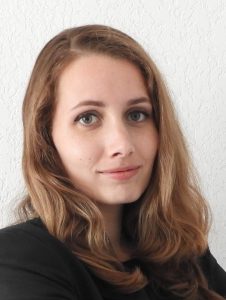 Romane André (ex-cpi 2012-2014)
Romane André (ex-cpi 2012-2014)
“The CPI is a big family. We all spend a lot of time together. We help each other, no competition here. The workload is significant but it is well distributed over the year. One is evaluated in continuous control of the blow no pressure. The teachers know each of us, are caring and very accessible during and after classes. In 2nd year all chemistry schools come to present themselves. It helps us make our choice. There is a real continuity between CPI and engineering cycle, I was immediately at ease and in tempo. In CPI, I learned to juggle between a rich student life and the lessons so I did not let myself be trapped. “
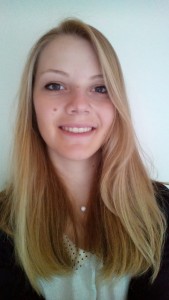 Auriane Sonnet (ex-cpi ENSCR et EI1)
Auriane Sonnet (ex-cpi ENSCR et EI1)
“The CPI has really been a good experience for me. I received quality training with teachers who were always ready to answer any questions. I particularly liked the fact of being integrated directly into the engineering school because it allows us to see further than the preparatory cycle and to think about its orientation (specialties, internships) in particular by talking with the students of the engineering cycle . Today in the 1st year of the engineering cycle at the ENSCR, I can say that the CPI brought me the knowledge required to calmly approach the engineering cycle! “
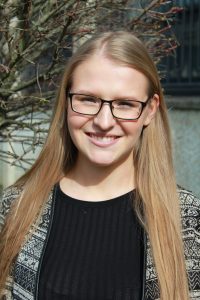 Lenka Rihakova (of Czech origin, in Chemist 2)
Lenka Rihakova (of Czech origin, in Chemist 2)
“I discovered ENSCR during a presentation at my school in the Czech Republic. After obtaining my baccalaureate in a bilingual high school, I decided to take this opportunity and go to France to continue my studies which gave me the opportunity to deepen my linguistic knowledge and to pursue the scientific studies for which I have been passionate about it for a long time. The international class allowed me to get to know many cultures, languages and personalities that I would never have known otherwise. I was very well received by my classmates as well as by the older students (sponsorship system), the pleasant atmosphere helped me to overcome the difficulties encountered in daily life. The training we are following is interesting because it allows us to choose a very precise path in the field of chemistry by combining theory and practice so as to direct us on the path leading to our future career.“

